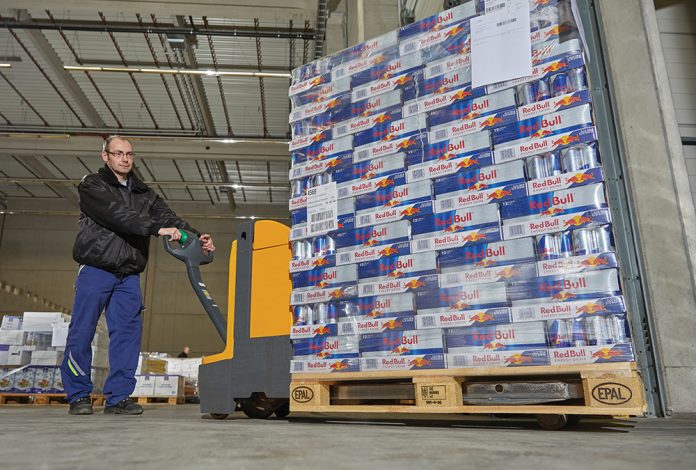It is now a legal requirement that every wooden pallet crossing a UK/EU border is ISPM15-certified. Following the dash to source adequate supplies of compliant pallets towards the end of 2020, Felicity Smith, national secretary for EPAL UK & Ireland, discusses the impact the change has had on the market.
When the UK left the European Union at the beginning of the year, new legal requirements came into force governing the movement of pallets and other wooden packaging material (WPM). ISPM15 rules stipulate that all WPM must be heat-treated, and marked as such, before they can cross the border between the two now separate areas. The aim of the regulations is to prevent the possibility of harmful pests moving between countries – even though, after Brexit, the actual risk embodied by WPM remains unchanged.
The change in rules itself may sound straightforward; however, it has significant implications for the speed and efficiency of supply chains overall, as the vast majority of consumer goods are transported on pallets, from fmcg to pharmaceutical products. The new obligations may lead to inspections, which in turn may lead to unwelcome delays.
In the lead up to the completion of Brexit, there was significant concern about the ability of the pallet and packaging industry to supply enough compliant pallets to meet demand. Trade organisations, including TIMCON in the UK and FEFPEB in Europe, sought clarity on whether WPM movements would remain exempt from ISPM15, under the different ‘deal’ or ‘no deal’ scenarios being discussed. But, with both sides holding their cards close to their chests during the negotiations, this was a lengthy and initially unsatisfactory process.
Then, in the final few weeks before the December 31, 2020 deadline, it became clear that, whatever type of Brexit would happen, the ISPM15 regime would be changing.
This led to a scramble to build up stocks of compliant pallets to ensure continuity of supply from January 1, 2021. Actions taken included increasing heat-treatment capacity – either through investment or running extra kiln shifts – and government intervention to allow heat-treated ISPM15 wooden parts to repair used pallets without the need to re-heat the entire pallet afterwards (called ‘exemption’ and ‘easement’ measures).
All EPAL pallets – new and reconditioned – are ISPM15 compliant as standard, and the UK & Ireland arm of the business reported sales increases of 13 per cent in the third quarter of 2020. Businesses wishing to eliminate completely the risk to their supply chains of delays caused by Brexit looked to build up stores of treated pallets to ensure they were ready for the change.
The work that the pallet and packaging industry carried out alongside UK government to prepare for Brexit apparently paid off. While the changeover in January saw parts of the import and export business struggle with the significant increase in administration, time and cost of a host of new requirements, non-compliance to the ISPM15 rules reportedly caused only relatively minor disruption. Most of the industry now believes it can satisfy customers’ demands for compliant pallets.
As Defra representative Will Surman highlighted at a recent TIMCON meeting, ISPM15 is now the norm and, while enforcement will continue with limited resources being focused on higher risk origins, the new rules for UK/EU movements are unlikely to be wound back.
In addition, with global warming increasing the possibility that invasive species will thrive more easily in new locations, we may find that ISPM15 requirements are in fact rolled out to the borders of further destinations – including intra-EU movements – in the years ahead. So businesses who have ensured they are compliant now should have a substantial head a start for the future.
Heat-treated pallets bring additional benefit to businesses, too, as they are stronger, making them a better choice for high-value goods such as drinks or pharmaceutical products; less likely to fail; and are longer lasting, so they can be repaired and reused many times. This is better for the bottom line and the environment. EPAL pallets are heated further to ‘kiln-dried’ levels – so these benefits to the companies using them are enhanced further still. They are safe for loads of up to 1.25 tonnes, independently audited and specified ‘as new’ when repaired.
www.epal.eu










